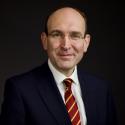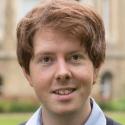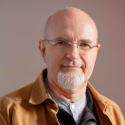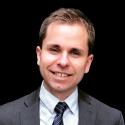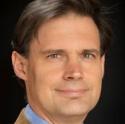2023 Theologians Network
- Image

Many evangelical theologians teach in universities, seminaries, and colleges with little opportunity for dialogue, fellowship, and encouragement from their evangelical brothers and sisters. The Theologians Network has been designed to provide this context and to make available an opportunity to interact with some of the world's leading evangelical scholars.
Applicants should be involved in full-time theological education (such as teachers, professors, and theology students).
Network Leadership
Network Speakers
Max Baker-Hytch received his PhD in Philosophy from Oxford University in 2014 and subsequently held two postdoctoral research fellowships, one at Oxford (2014-15) and one at the University of Notre Dame (2015-16). Since 2016, he has been Tutorial Fellow in Philosophy at Wycliffe Hall, Oxford… Read more
Leonardo De Chirico is the pastor of Breccia di Roma, a church that he helped plant in Rome in 2009, and Chair of the Theological Commission of the Italian Evangelical Alliance. Previously, Leonardo planted and pastored an evangelical church in Ferrara, Italy from 1997 to 2009. He earned degrees… Read more
Dirk Jongkind is the Academic Vice Principal of Tyndale House, Cambridge, and an Affiliated Lecturer at Cambridge University. His main scholarly interest is the text and language of the Greek New Testament. He is also the editor of the Tyndale House Greek New Testament… Read more
Kaspars is an assistant professor of Old Testament interpretation at The Southern Baptist Theological Seminary. He was born in Latvia (Northern Europe) but grew up in California. Fascinated with ancient languages since his teens, he has studied Indo-European historical linguistics at the… Read more
Michael Reeves is President and Professor of Theology at Union School of Theology in the UK. He is a Senior Fellow of Newton House, Oxford, and speaks and teaches regularly worldwide. Previously he has been Head of Theology for UCCF and an associate minister at All Souls Church, Langham Place,… Read more
Peter J. Williams is the Principal and CEO of Tyndale House, Cambridge. He was educated at the University of Cambridge, where he received his MA, MPhil, and PhD in the study of ancient languages related to the Bible. After his PhD, he was on staff in the Faculty of Divinity at the University of… Read more
Network Programme
Sunday, 21 May
Scripture is central to our theological disciplines. But do the disciplines of Systematic Theology and Textual Criticism ever touch one another? Some text-critics hold that the activity of establishing the wording of the Biblical text is not - or at least not much - affected by the conclusions of systematicians. Reversely, systematicians happily repeat the adage that Systematic Theology is not affected by textual criticism. Either side is content that one can ignore the existence of the other. Are there places in the New Testament where textual variants do become relevant for Systematic Theology? This session will engage a range of well-known textual variants that have an increasingly material impact on how we think about Christ (Mark 1:1; John 1:18; Luke 23:34a), and will also mention a textual variant that has been conveniently ignored in the ethics of marriage (1 Corinthians 7:38). Apart from these places where text-critics should have a conversation with their theological colleagues, there is also an area where theologians ought to have a conversation with text-critics. And this conversation revolves around the question of what does it mean that the church has to engage in textual criticism? How does this fit into how we think about the Bible, providence, and the church?
In this session, we consider critically some of the words we use in discussing a doctrine of Scripture, including Apocrypha, Authority, Autograph, Bible, Canon, Copy, Inspire, Manuscript, Masoretic Text, Original, Scripture, Septuagint, Text, Verbal, and Wording. This will result in a number of recommendations about the way we should use language in the future.
Monday, 22 May
The task of theology can be prone to reducing faith to mere intellectual assent, so mistaking the nature of faith. Through a systematic and historical study, this session will look at the necessary work of the Spirit in regenerating the heart and its importance for understanding both faith and the task of theology.
Thomas Aquinas (1225-1274) and his legacy have become topics of intense debate in some evangelical circles today. There are those who look at him with great admiration and want to be identified as evangelical “Thomists” and others who think that Thomas is quintessentially a misleading theologian, being at the root of all the errors of Rome. Having this discussion in the background, the session will focus on Thomas’ doctrine of justification by faith, mainly drawing from his Summa Theologia. It will be an entry point into the theological universe of Thomas and will provide a case study of his larger theological work.
Tuesday, 23 May
The “Biblical Renewal” is one of the most significant movements that have both preceded and followed the Second Vatican Council (1962-1965). After centuries of prohibiting the circulation of the Bible in the vernacular languages, the Roman Catholic Church has been working hard to reconnect with the Scriptures. While rejoicing for some fruits of the “Biblical Renewal” that is taking place in Roman Catholicism, the analysis of key magisterial texts shows that in no way has Rome come closer to Sola Scriptura, that is, the obedience to the self-attesting Word of God. In this workshop, we will unpack the Roman Catholic view of Scripture and consider how it leads Catholics to think so differently from Evangelicals.
In recent decades, a growing number of evangelicals have begun to question the messianic basis of the Old Testament. Although Christians agree that the Hebrew Bible anticipates Christ in some form, this is now viewed by some in terms of a general promise, and not direct fulfillment. Consequently, those with a high view of Scripture and the unity of both Testaments need to address this challenge: How messianic is the Old Testament? Did the apostles and Christ correctly interpret the Old Testament when they claimed that everything written about him in the “Law of Moses, the Prophets, and the Psalms must be fulfilled” (Luke 24:44)?
Wednesday, 24 May
Transhumanism is an emerging worldview that promises to fundamentally transform the human condition through enhancement technologies such as genetic engineering, nanotechnology, and AI, even aspiring to overcome the ultimate limitation: death. In this seminar we take a deep dive into the understanding of human nature that underpins this ideology, and set it side by side with a Biblical understanding of what it means to be human, asking where there might be some points of contact but also where the deep dividing lines lie.
Though Christians acknowledge Jesus as God, and therefore omniscient, we often underestimate the intellectual depth of his teaching. This session looks at how his teaching frequently involves surprising richness of reference to the Old Testament, and has a depth which is not obvious to those who do not train their ear to listen. It seems that Jesus not only taught in more than one language, but could communicate in ways that aid the memory.

